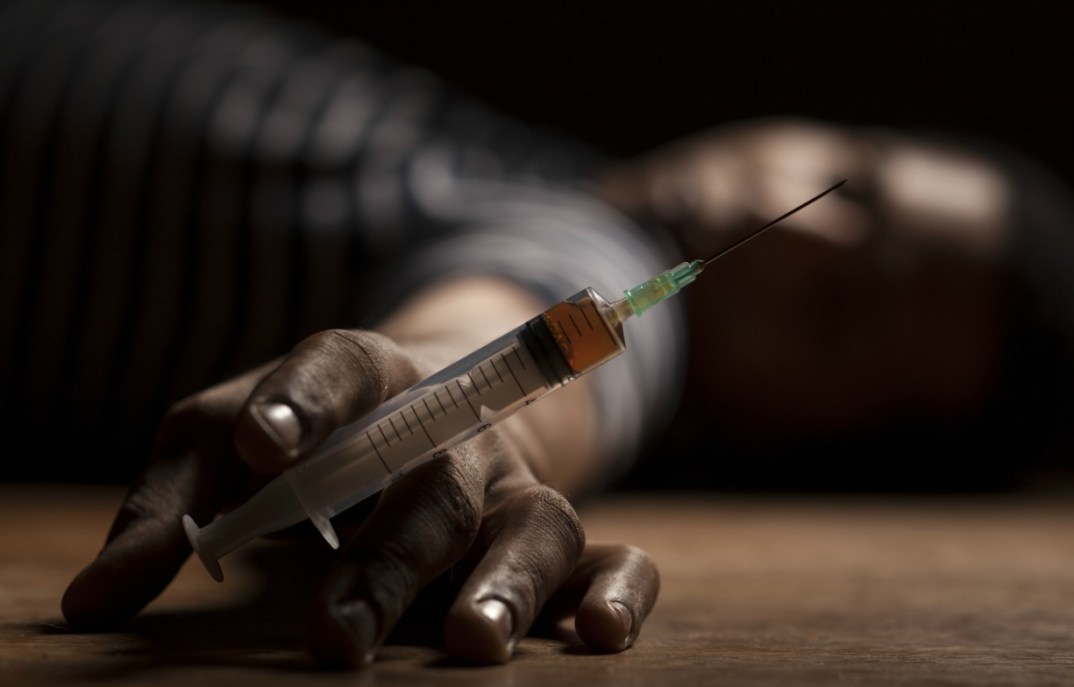Opioid deaths on the rise for Blacks living in Eastern states
A new research paper's findings show that opioid drugs are having a greater effect on Black communities than once thought

The picture that is often on the TV screen depicting the opioid epidemic is now, more often than not, rural, low-income, Appalachian, and white – which alone has prompted more attention from legislators and the media than in previous years when Blacks and Latinos were struggling in urban areas with drug epidemics.
But Monica Alexander, an assistant professor in statistical sciences and sociology at the University of Toronto, says that picture is not the most complete narrative. In the paper she recently co-authored, entitled: “Trends in Black and White Opioid Mortality in the United States, 1979-2015,” she explains that opioid addiction transcends race.
READ MORE: Meth is the New Black: A growing epidemic in communities of color
“I was inspired by a New York Times article on how the opioid epidemic was mostly affecting white people. That turned out to be false,” Alexander said, according to scientific research news website Medical Xpress. “The data showed that the current number of opioid-related deaths is increasing at a higher rate for Black people.”
Alexander, and three researchers at Stanford and Harvard Universities, combed through nearly 20 years of research data on causes of death before arriving at their findings: the crisis is spreading rapidly, synthetic opioids are leading to more deaths, and Eastern states — which include urban areas– are experiencing a sharp rise in opioid deaths.
According to Medical Xpress, Alexander’s research found that opioid-related deaths quadrupled over the last 20 years — and in most states pose an even greater potential of death than firearms or car accidents.
States such as Connecticut, Illinois, Indiana, Massachusetts, Maryland, Maine, New Hampshire and Ohio are showing the highest spike in opioid-related deaths. In these states, overwhelmingly, synthetic opioids like fentanyl are now far outpacing heroin deaths.
Fentanyl can be 100 times stronger than morphine and more lethal than heroin. It has become a common practice for some drug dealers to lace drugs with fentanyl because it saves money.
READ MORE: Philadelphia Police Chief: Opioids more deadly to Blacks than gun violence
Alexander said the Eastern states seem to be getting hit harder because of the color of the heroin that the synthetic opioids are mixed with.
“West of the Mississippi, you see heroin sold mostly in the form of black tar heroin, which is hard to mix with other drugs. East of the Mississippi, you mostly see white powder heroin, which is very easy to lace with synthetic opioids,” Alexander said, according to Medical Xpress. “It’s impossible for drug users to just look at it and determine if this is just heroin or heroin laced with something much deadlier.”
In her research paper, first published last month in JAMA Network Open, Alexander outlined some pro-active steps legislators can take to help turn the dismal stats around, including offering greater access to naloxone, implementing widespread needle exchange programs and increasing the programs that support people suffering from addiction.
“Opioid-related deaths were previously thought to be concentrated in the white population, in the Appalachian and midwestern states, and particularly induced by natural and semisynthetic prescription opioids, such as oxycodone hydrochloride. However, emerging research suggests that the opioid epidemic is not a single epidemic but multiple co-occurring epidemics marked by different types of opioids and diverse geographical, temporal, and sociodemographic patterns,” the paper reads.
It continues: “The evolution has also seen a wider range of populations being affected, with the spread of the epidemic from rural to urban areas and considerable increases in opioid-related mortality observed in the black population.
“We are at a point where this is an emergency. Something needs to be done if we want to prevent even more people from dying,” Alexander cautioned in the paper.
READ MORE: Black Tennessee doctor charged in massive opioid fraud scheme
